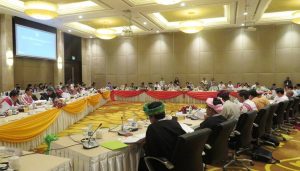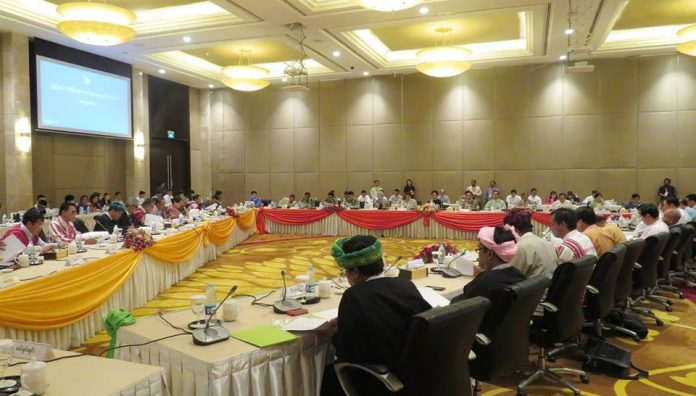At a meeting of the Union Peace Dialogue Joint Committee (UPDJC) held a few days ago, the Burmese (Myanmar) government announced that it would agree to allow the seven states, where most of the country’s minority ethnic groups live, to draft their own constitutions. The matter will be discussed at the upcoming second round of the 21st Century Panglong Peace Conference.
 Adopting new state constitutions would be a great step forward, and is essential to the formation the federal union that minority ethnic people demand. New constitutions would have important effects on the structure of the executive, judiciary and legislature, and also on economic and environmental policy.
Adopting new state constitutions would be a great step forward, and is essential to the formation the federal union that minority ethnic people demand. New constitutions would have important effects on the structure of the executive, judiciary and legislature, and also on economic and environmental policy.
But we must also pause to consider what these constitutions will look like. What will be the fundamental principles that guide them? And what model of federalism is right for Burma? Who will write the constitution and who will answer to it? And what of the majority Bamar people who mostly inhabit the central regions? Will they too get a state?
Without answering these questions—or changing the 2008 Union constitution that gives 25% of seats in parliament to the military—we cannot create constitutions that are acceptable to the minority ethnic people.
Fundamentally, these questions ask where sovereignty rests in a federal Burma. To what degree would the minority ethnic people be able to exercise self-determination and how would the structures of government define power. These constitutions will define executive legislative and judicial power, and, critically, the power of the fourth estate, the media.
So while the announcement is certainly welcome news, without more information about the process of writing the constitutions and what the relationship of state constitutions will be to the Union Constitution, we remain cautious. At Mon News Agency, we are still waiting to see what this new means for national unity and the many potholes on the road to federalism.

